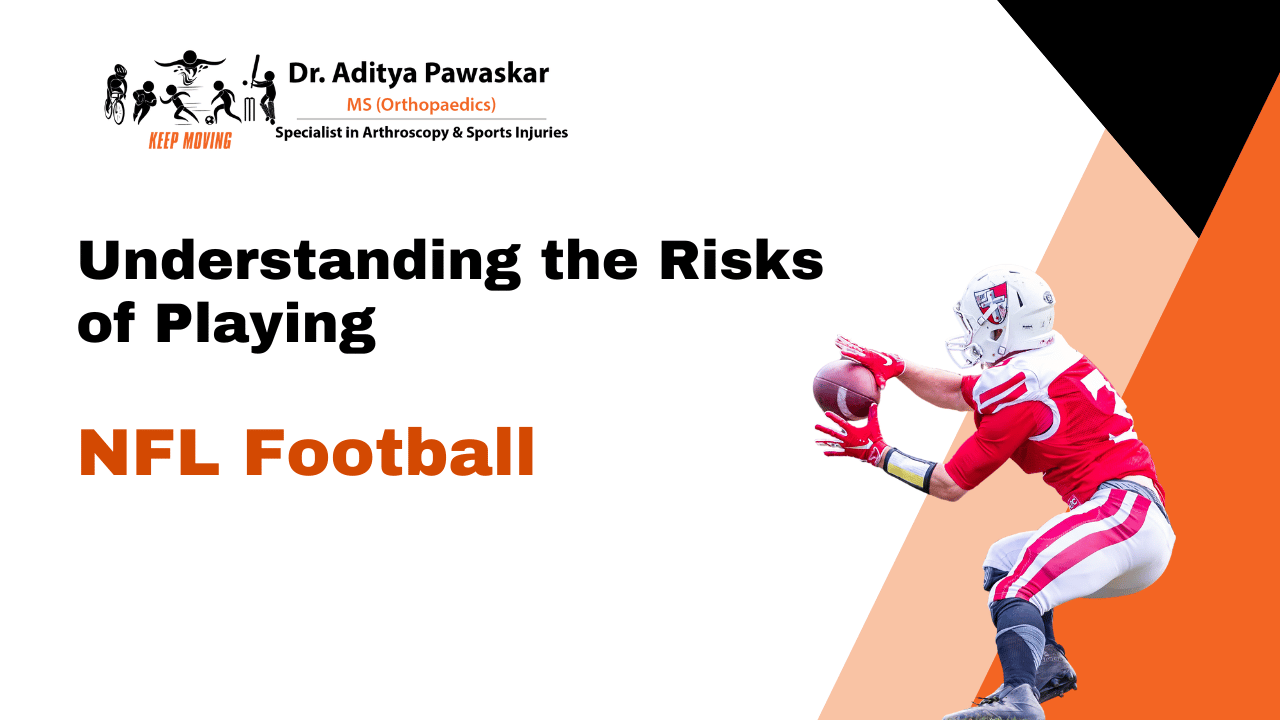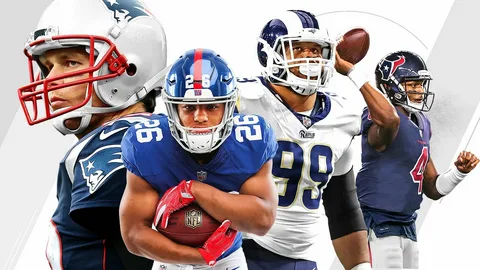 ="https://dradityapawaskar.com/resources/assets/images/blog-thumbnail/Understanding-the-Risks-of-Playing-NFL-Football.png" alt="Between the Tackles: Understanding the Risks of Playing NFL Football">
="https://dradityapawaskar.com/resources/assets/images/blog-thumbnail/Understanding-the-Risks-of-Playing-NFL-Football.png" alt="Between the Tackles: Understanding the Risks of Playing NFL Football">
Introduction
Football, particularly the National Football League (NFL), has long been celebrated as America's favourite sport. The thrill of watching athletes clash on the field, showcasing incredible physical prowess and strategic acumen, captivates millions of fans each season. However, amid the glory and excitement, there lies a complex reality that often goes overlooked—the significant risks associated with playing NFL football. Let us get into the various facets of these risks, shedding light on the challenges faced by players and the broader implications for the sport.

Physical Injuries
- One of the most apparent risks of playing NFL football is the high potential for physical injuries.
- The nature of the game, characterized by intense collisions and rapid movements, places tremendous strain on players' bodies. Common injuries include concussions, ligament tears (such as ACL and MCL injuries), fractures, and chronic pain conditions.
- These injuries not only affect players' immediate health but can also have long-term consequences, leading to disabilities and reduced quality of life post-retirement.
Concussions and Brain Trauma
- Concussions, in particular, have garnered significant attention due to their link to chronic traumatic encephalopathy (CTE) and other neurodegenerative disorders.
- CTE is a progressive brain condition associated with repeated head trauma, leading to symptoms such as memory loss, cognitive decline, mood disturbances, and behavioural changes.
- The NFL has implemented protocols to address concussions more effectively, but the risk remains a significant concern for players' long-term health.

Mental Health Challenges

- Beyond physical injuries, NFL players often suffer from mental health challenges.
- The pressure to perform at the highest level, the transient nature of careers, and the physical toll of the game can contribute to anxiety, depression, and substance abuse among players.
- The NFL has made strides in promoting mental wellness and providing support services, but stigma and barriers to care persist within the sports culture.
Longevity and Quality of Life
- The average NFL career is relatively short compared to other professions, with many players retiring in their 20s or early 30s.
- The early exit from the game can pose challenges in terms of career transition, financial stability, and maintaining physical and mental well-being post-retirement.
- Players often face difficulties adjusting to life after football, highlighting the need for comprehensive support programs and resources.

Ethical and Moral Considerations

- The risks associated with NFL football raise ethical and moral questions about the balance between entertainment, player safety, and societal values.
- This dilemma underscores the importance of ongoing dialogue, research, and advocacy to promote safer playing conditions and prioritize players' health and well-being.
Conclusion
Playing NFL football entails a myriad of risks, from physical injuries and concussions to mental health challenges and ethical considerations. While the sport continues to captivate audiences worldwide, it is crucial to acknowledge and address these risks proactively. The NFL, along with players' associations, healthcare professionals, researchers, and fans, must work collaboratively to implement measures that promote safer play, support player well-being, and ensure a sustainable future for the sport we love. Dr. Aditya Pawaskar, a sports medicine expert, will help you understand and address these challenges. He will help you strive for a more balanced and compassionate approach to football, both on and off the field.

The Best Sports Injury Specialist In Mumbai
- Dr. Aditya Pawaskar is one of the best Arthroscopic Surgeon & Sports Medicine Doctor in Mumbai for treating ailments related to Arthroscopy & Sports Injury in Mumbai. Dr. Aditya Pawaskar provides high-class treatment and personalized care to patients.